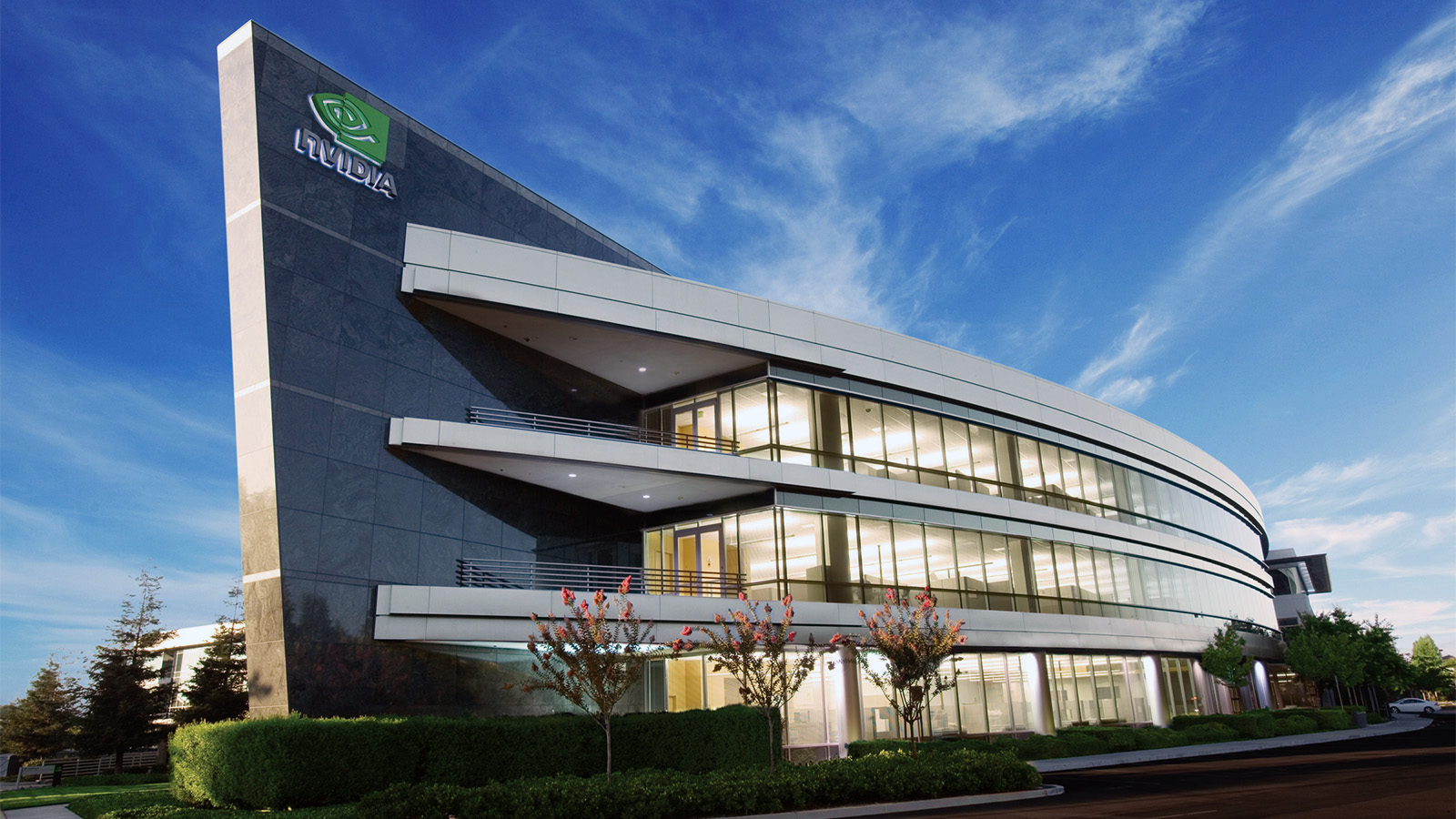Nvidia could receive French ban hammer — antitrust charges may follow government raids of Nvidia's offices in France

The French Autorité de la concurrence (Competition Authority) appears likely to soon charge Nvidia with anti-competitive business practices, according to sources obtained by Reuters. The charges would come nine months after the Competition Authority raided Nvidia's French offices, and hinge on Nvidia's complete dominion over the AI compute space.
Nvidia, which recently became the largest company by market cap in the world (currently in 3rd place at the time of writing), has climbed to this great height thanks to the AI boom. Sparked by the rise of ChatGPT and other generative AI for consumers and machine learning for enterprise applications, Nvidia has established itself as the only place to buy shovels for the AI gold rush, as its graphics cards are the best solution for high-level AI computing. Billion-dollar orders like Elon Musk's purchase of 100,000 H100 GPUs have become routine headlines for Nvidia.
This monopoly is the source of the French Competition Authority's concern. The regulatory board published a report last Friday surveying the state of the AI market and investigating how much competition and therefore innovation is allowed in its current state. In this report, the Competition Authority expressed concern over the risk of abuse by chip providers. Specifically mentioned was "the sector’s dependence on Nvidia’s CUDA chip programming software (the only one that is 100% compatible with the [Nvidia] GPUs that have become essential for accelerated computing)." A red flag was also raised by Nvidia's investments in AI cloud providers like CoreWeave, investment partnerships that may unduly inflate Nvidia's market performance.
The Authority also outlines potential risks from chip providers, including price fixing, production restrictions, and unfair contract conditions/behaviors. While Nvidia is not expressly accused of these potential offenses, Nvidia is the only chip provider named in the report. The AI market's overwhelming dependency on Nvidia hardware was not a major concern point for the Authority, which seems to have found alternative sources like Google's TPU AI accelerators to be sufficient competition.
Nvidia risks a maximum penalty of 10% of its annual global revenue in fines if found to be breaching French antitrust and anti-competition laws. This assumes that the French government will pursue legislation against Nvidia and that Nvidia would receive the highest punishment, which is an unlikely but dizzying prospect for the tech giant.
The house that Huang built also faces stormy waters back in the United States, where Nvidia seeks to gain an export license to send its products to the heavily sanctioned Middle East. The FTC continues to monitor Nvidia since blocking its attempted $40 billion Arm merger in 2022.
Get Tom's Hardware's best news and in-depth reviews, straight to your inbox.

Sunny Grimm is a contributing writer for Tom's Hardware. He has been building and breaking computers since 2017, serving as the resident youngster at Tom's. From APUs to RGB, Sunny has a handle on all the latest tech news.
-
DavidMV Zero chance of a large fine. Nvidia would leave France long before paying 10% of its revenue to France. France isn't a player in AI and has little to no leverage here. The US and Taiwan are the only countries with real leverage over Nvidia.Reply -
ThomasKinsley Nvidia may indeed be a monopoly, but the French government receiving 10% of Nvidia's annual global revenue as a result of that potential fact makes no sense. In that scenario, Nvidia would do well to leave and let France deal with AMD and Intel.Reply -
watzupken The things that the French regulatory body called out are factual. Just unfortunate that most nations just closed both their eyes to the issues.Reply -
JTWrenn Why can't we get reasonable anti trust that is so damn late to the game that it doesn't matter? This late with a. Fine so out of whack that the company will just walk way is silly. The reporting is a bit wrong as well because it is up to and we know nothing about what they are going to do here. This feels very speculative at this point.Reply
That said competition is good and we should have more but Nvidia making the best language for their own card is not the issue here. It is whatever buying or blocking they did to other companies. -
Alvar "Miles" Udell Price fixing...All you need to do is look back to the launch of the RTX 2000 series and the doubling of prices by nVidia AND AMD and the lack of price competition between the two since then which keep GPU prices high to see that there is definitely collusion and price fixing.Reply -
Starman80 Reply
I could see 0.1%, but not even 1% (let alone 10%!)DavidMV said:Zero chance of a large fine. Nvidia would leave France long before paying 10% of its revenue to France. France isn't a player in AI and has little to no leverage here. The US and Taiwan are the only countries with real leverage over Nvidia. -
hotaru251 While I do agree its bad they are basically "the choice for ai related stuff" atm..Reply
In this report, the Competition Authority expressed concern over the risk of abuse by chip providers. Specifically mentioned was "the sector’s dependence on Nvidia’s CUDA chip programming software (the only one that is 100% compatible with the GPUs that have become essential for accelerated computing)."
this is a legit STUPID statement for the reasoning.
Yes, CUDA is annoyingly proprietary, however blame the devs of stuff that uses it...they could of chose not to. Nobody held a gun up and said you must build it to use cuda.
Theres even a growing collective to NOT use cuda just because nvidia is dangerous to the company rivals.
https://www.fool.com/investing/2024/03/30/these-tech-titans-are-teaming-up-against-nvidia/
except from the article: "Several tech giants are supporting an open-source alternative to CUDA, Nvidia’s closed-source programming platform for its own GPUs." -
mikerahl The French and by extension, the EU could consider nationalizing all of Nvidia's patents and copyright and moving them to open source, allowing all their competitors free access to the technology. Instead of large fines, losing control of a monopolistic use of technology seems a much better solutionReply -
HansSchulze There are huge costs with increasing performance by 50% per year, and every other year, doubling of mask prices and pancaking of yield levels to less than 50%. Take a look what the prices are for a brand new N4 TSMC wafer from scratch, it's in the billions of dollars. Then 6 months go by where there arent enough chips to feed the demand, scalpers buy the boards and resell for 2x. Same with 2 waves of miners. There's hundred(s) of bucks of cost in boards, memory chips, heating, power chips, over 1000 capacitors, and almost a thousand engineers who need to babysit testing, fault analysis, electron microscopes, and hundreds of supply chain, management, finance, logistics support people, just to make one product. Many work 10 or more hours a day, deal with remote locations in many timezones and barely have energy on a Saturday to go on a hike. 30,000 people, most of which work hard, and get diss from everyone because the latest tech is too expensive.Reply
The place to look for monopolies is the solar industry, where panels are made in China for 50$, come to USA, list for 200$, and are sold for 40,000$ against a home mortgage. And we need tens of millions of those systems. A 5000$ heatpump cost $20,000 installed in 1 day by 2 guys. Why? Cause they can. Same with defense and construction. Some of their margins are as high as 500%. The heatpump also probably cost 1000$ to make, not including engineering.
Those costs affect every one, and way more power consumption and CO2 than GPUs. Only advantage is to reduce power by 50%.
Nvidia has to guess whats going to be relevant next year, and what Elon and Sam are going to invent next. Elon wasn't convinced when we gave him HW2.5. HW3 HW4 and now HW5 at 10x faster underlines how hard it is to figure out how to do next years's AI. Finally, Elon gets it. With ten competitors ready to slash into the biz if Nvidia makes a serious mistake. Never in the history of mankind have so many human endeavors had so much potential to break open in the next few years. Your next drugs, proteins, enzymes, will be designed, vetted, simulated by GPUs. What is that worth? 10 years of life?
Alternatively, why are Epipens 500$ when they can save a life? They won't at that price.
Alvar Miles Udell said:Price fixing...All you need to do is look back to the launch of the RTX 2000 series and the doubling of prices by nVidia AND AMD and the lack of price competition between the two since then which keep GPU prices high to see that there is definitely collusion and price fixing.